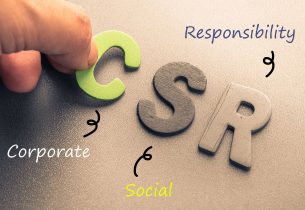
Family stories about mental illness transmitted from one generation to another can both reinforce stereotypes and yet still teach children important lessons and expectations about the management of such illnesses, according to a new pilot study. This area of study may help explain the role family communication plays in young…
Read more
Social change communicators running social media campaigns should ensure people feel they are able to help resolve the issue and tout the benefits of participating in the campaign to increase engagement, a new study finds. Although social media has changed the landscape of how people can gather around a cause,…
Read more
News organizations are starting to experiment with automated content. Research suggests readers perceive news written by algorithms as less credible than if it’s written by a human. However, this perception can be reduced by exposure to robots in popular culture. That’s the finding of two studies examining the impact of…
Read more
In the past year and a half, many political researchers and commentators have presented different theories that attempt to explain Donald Trump’s appeal to the American voters who elected him president. A new analysis suggests that Trump supporters’ motivations included negative opinions about the economy in general and about the…
Read more
The presidential election of 2016 brought with it multiple accusations of so-called fake news, along with actual examples of fictional stories, such as one that spawned a real-life shooting at a Washington, D.C. pizzeria. With a flood of information from countless sources, it’s increasingly challenging to combat fake news and…
Read more
Alcohol abuse is no laughing matter, and this serious problem often starts in college, where estimates suggest that 40 percent of college students binge drink. In the past 20 years, many health campaigns have aimed public service announcements at heavy drinkers in hopes of changing drinking habits and preventing alcohol…
Read more
People think that they make decisions based on rationally analyzed choices, but research shows that people frequently make decisions based on irrelevant information due to unconscious cognitive biases. How can people avoid relying on cognitive shortcuts that leave them vulnerable to making poor choices? New research suggests they might want…
Read more
By Clay Calvert Thousands of high school students across the nation left their classes March 14 precisely at 10 a.m. for 17 minutes. The walkout served two purposes: to honor the 17 people – including 14 students – killed exactly one month ago at Marjory Stoneman Douglas High School in Parkland,…
Read more
In the ever-advancing world of medicine, access to a cutting-edge clinical trial treatment can help determine a cancer patient’s future. Although 20 percent of cancer patients are eligible for treatment clinical trials, participation hovers around three to five percent. Moreover, patients from racial and ethnic minority groups and underserved populations…
Read more
Faced with dwindling resources, and a news cycle that never sleeps, today’s health journalists must meet a new challenge: provide complete, trustworthy content on health care issues with precision at the same breakneck speed with which the medical field innovates. In an article published this year in the journal Health…
Read more
Companies can have a variety of reasons for engaging in what the public considers socially responsible (CSR) practices. These motives can range from the purely philanthropic to desiring a favorable image to increasing revenue. In a crisis situation, a campaign to communicate CSR needs to be especially sensitive to public…
Read more
By Rita Linjuan Men Offering employees the information they need and keeping them informed and updated is only one of the basic goals of internal communication. A more important purpose of internal communication is to establish employees’ deeper-level emotional connection with the organization. More and more companies today are striving…
Read more